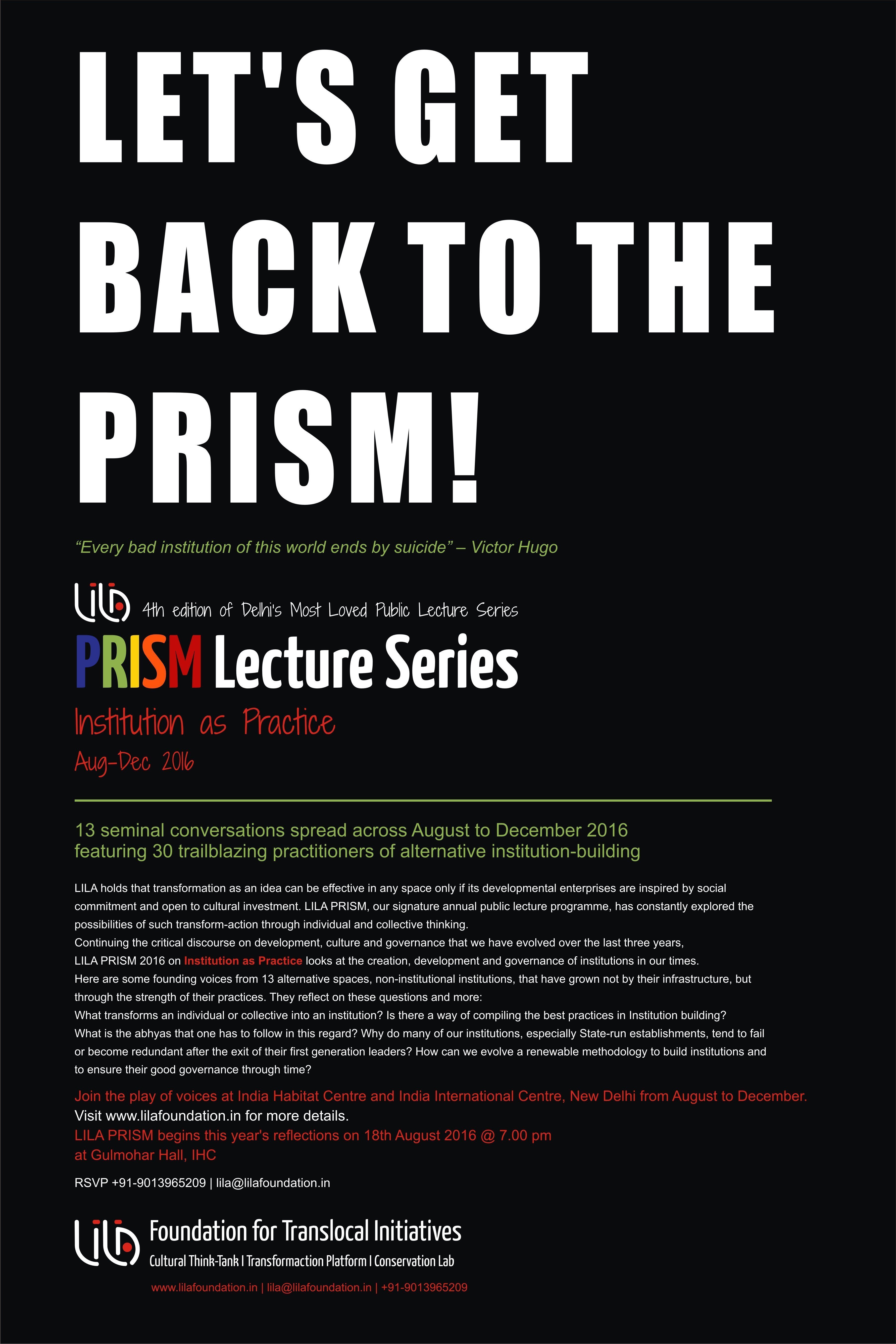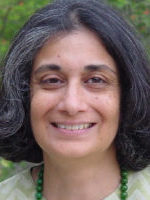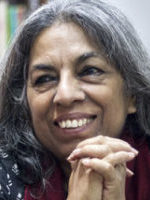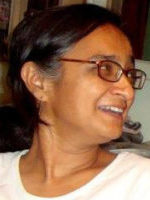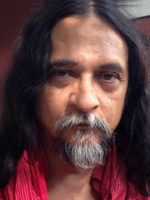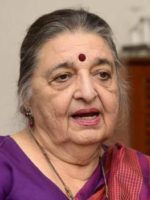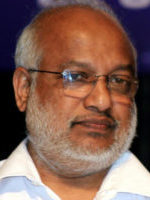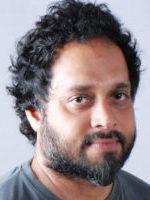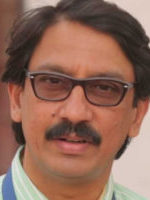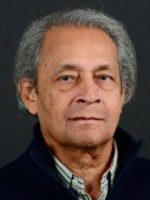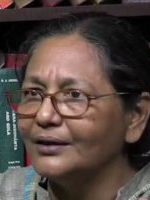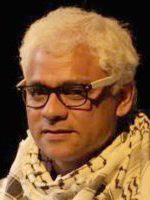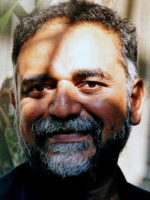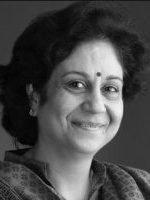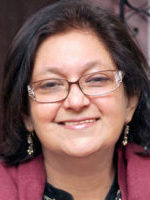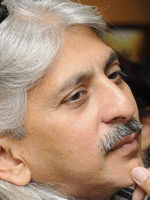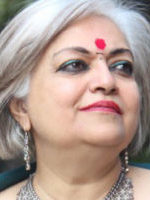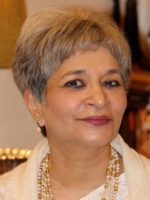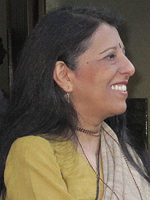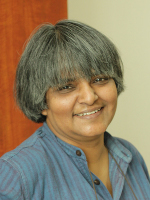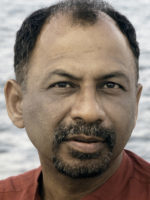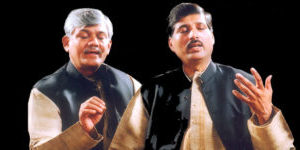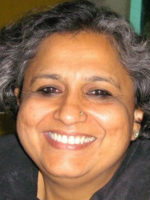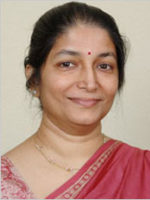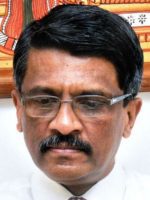Festivals and Beyond is an offstage conversation that reveals the passion that drives three extraordinarily creative people who believe in interconnections of people and ideas. In the wake of the success of the Jaipur Lit Fest, Namita Gokhale, Sanjoy Roy and William Darlymple have become household names in the Indian cultural scene. At LILA PRISM, they share their experiences not only of literary and cultural organization in India and abroad, but also their own individual pursuits as creative artists. Join them as they engage in a heart to heart conversation with the equally versatile Alka Pande.
| Namita Gokhale is a writer, publisher and festival director. She is the author of thirteen books including seven previous works of fiction. Her debut novel, Paro: Dreams of Passion, first published in 1984, created a furore due to its frank sexual humour. Other books include, Gods, Graves and Grandmother, Shakuntala: the Play of Memory, Priya In Incredible Indyaa, The Habit of Love, The Puffin Mahabharata, In Search of Sita, The Book of Shiva, Mountain Echoes and the edited anthology, Travelling In, Travelling Out. The Himalayan series, continued in the forthcomingThings to Leave Behind, includes A Himalayan Love Story, The Book of Shadows and Himalaya: Adventures, Meditations, Life co-edited with Ruskin Bond to be published shortly. Gokhale is a founder and co-director of the Jaipur Literature Festival and ‘Mountain Echoes’, the Bhutan Literature Festival. She is director of Yatra Books, a publishing house specialised in translation. |
|
Sanjoy K. Roy is the Managing Director of Teamwork Arts, which produces over 25 highly acclaimed performing arts, visual arts and literary festivals across 40 cities in countries such as Australia, Canada, Egypt, France, Germany, Hong Kong, Italy, Israel, Korea, Singapore, South Africa, Spain, UK and USA, and includes the world’s largest literary gathering — the annual Jaipur Literature Festival. He has also produced and directed over 1000 hours of TV and film. He is a founder trustee of Salaam Baalak Trust, working to provide support services for street and working children in the inner city of Delhi where over 55,000 children have benefitted from education, training and residential services. The White House recently presented him the US President’s Committee of Arts and Humanities Award for an international organisation. He serves as an advisor for the arts and diversity for numerous government and non-governmental organisations across the world. |
| William Dalrymple is the author of nine books about India and the Islamic world, including City of Djinns (Thomas Cook Travel Book Award and Sunday Times Young British Writer of the Year Prize), White Mughals (Wolfson Prize for History and SAC Scottish Book of the Year Prize), The Last Mughal (Duff Cooper Prize and Crossword/ Vodafone Award for Non-Fiction) and Nine Lives: In Search of the Sacred in Modern India (Asia House Literary Award). He recently curated a major show of Late Mughal art for the Asia Society in New York, Princes and Painters in Mughal Delhi 1707-1857. His latest book is Return of a King: The Battle for Afghanistan 1839-42. He also writes regularly for The New Yorker, the New York Review of Books and the Guardian, and is one of the founders and a co-director of the Jaipur Literature Festival. He has honorary doctorates of letters from the universities of St Andrews, Aberdeen, Bradford and Lucknow, and is a visiting fellowship at Princeton. |
|
Alka Pande (Chair) is an art historian who taught Indian Arts and Aesthetics at Panjab University for more than ten years. Her major fields of interest are gender identity and sexuality, and traditional arts. Dr Pande, under the aegis of the Charles Wallace India Trust, conducted postdoctoral research in critical art theory at Goldsmiths, University of London. In 2006, she was awarded the Knight of the Order of Arts and Letters- an honour bequeathed by the French government to recognize significant contributions in the fields of art and literature. In 2009, she received the Australian-India Council Special Award for her contribution to Indian art. In 2015, she was awarded L’Oreal Paris Femina Women under Design and Arts and Chandigarh Lalit Kala Akademi honours-in recognition of the distinguished contribution to art- with Amrita Sher-Gil Samman. Dr. Pande has been passionately involved with the world of art for more than three decades. She has been responsible for curating several significant and perceptive exhibitions in India and abroad. Her curatorial projects include the exhibitions, The Tree from the Seed at the Henie-Onstad Art Centre, Oslo; India Awakens Under the Banyan Tree at the Essl Museum, Vienna; and The Kama Sutra: Spirituality and Eroticism in Indian Art at the Pinacotheque, Paris, to name a few. Dr Pande is closely involved with South Central Zone Cultural Centre unique initiative project titled Documentation of Tangible and Intangible Cultural Resources. In the capacity of a curator, Dr Pande will hold an exhibition titled Tat Tvam Asi (That Thou Art) at IGNCA to showcase traditional arts, creative photographs, video installations which were produced during a month long art camp at the Simhastha Kumbh, Ujjain (2016). Dr Pande is responsible for setting-up museums: Divine Gesture, Udaipur City Palace, Kanha Museum, Singinawa. She has written extensively on Indian aesthetics and culture, some of her prominent books include Ardhanarishvara the Androgyne: Probing the Gender Within, The New Age Kama Sutra for Women, Shringara: The Many faces of Indian Beauty, Body in Indian Art (forthcoming). Currently, Dr Pande is a consultant art advisor and curator of the Visual Arts Gallery at the India Habitat Centre in New Delhi (India). |
|
